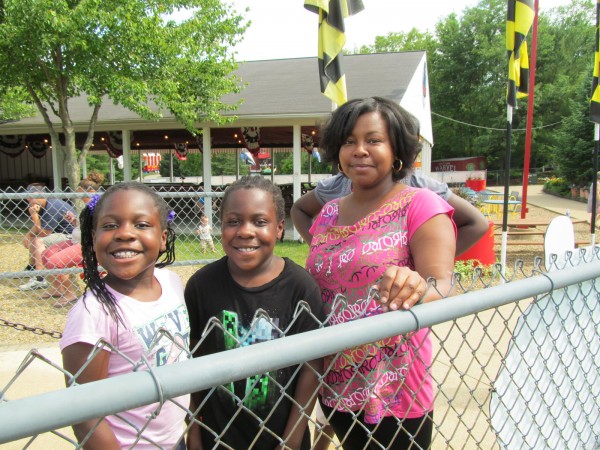Titles—Do they Really Matter?
As a new parent, we long to hear our baby’s first words and often those words are the endearing terms, “Mama” and “Dada.” Our hearts swell with joy as we realize our child recognizes who we are and they have names associated with us.
Titles play an important part as children understand roles and develop identities within a family. Sometimes these titles become more complicated in today’s families where there are more than just “Mom” and “Dad”; many children have step-parents, step-siblings, half-siblings, and in the case of adoption—birth parents.
So, it’s no wonder, I come across chatter in my online adoption groups about which titles belong to whom. Questions arise such as:
“What should my son call his birth mother and birth father?”
“How should my children refer to their sibling’s biological grandparents?”
“My biological daughter calls me “Aunt.” I think this is confusing. How do I tell her adoptive parents without hurting their feelings?”
 As a mother of six; some biological and some adopted, here are my suggestions for deciding on titles.
As a mother of six; some biological and some adopted, here are my suggestions for deciding on titles.
Talk about it with those involved, before it becomes an issue.
When adopting an infant, involve the birth family. Ask them what they prefer to be called by the child. One of our daughter’s biological grandmothers always called her grandmother, “Nana.” So, she asked if we would refer to her as “Nana” followed by her first name, Pat. All six of my children lovingly call her “Nana Pat” and her husband “Papa Mike”. This was a great option for us because we use the term “Grandma and Grandpa” with other grandparents and use first or last names to distinguish which grandparents we are referring to.
All of our children refer to their birth parents by first name without a title preceding it. This is what felt the most comfortable to those involved. As our children grew, we told them their birth and adoption stories frequently so they would understand the role these wonderful people play in their lives. We used the terms, birth mom, birth dad, etc. as we told their stories just so they would understand their role. But they always refer to them by just their first name, unless they are explaining their relationship to someone who may not know adoption is involved.
When adopting an older child, let the child take the lead, if they are able. They had already assigned the title “Mom” and “Dad” to someone else. It may take them time to feel comfortable calling you “Mom” and “Dad,” too. They may feel resentment if asked to call the person they always called “Mom” by some other name. Don’t be afraid to offer suggestions, but be flexible, compassionate, and understanding. If there will be an on-going relationship with their birth parents, consider their feelings too, and come to an agreement everyone can accept.
Think about other relationships the child has or will have. Will the titles you choose be too easily confused with other relationships?
 Take for example, the title “Aunt” or “Uncle”. If this is the title your child will use when speaking to your siblings, it may be confusing to use this title to refer to their birth mother or birth father. It may seem to them that their birth parents are brothers or sisters to their adoptive parents. When the child is old enough to understand the true relationship, will they feel like they were deceived, or truths were hidden from them for some reason?
Take for example, the title “Aunt” or “Uncle”. If this is the title your child will use when speaking to your siblings, it may be confusing to use this title to refer to their birth mother or birth father. It may seem to them that their birth parents are brothers or sisters to their adoptive parents. When the child is old enough to understand the true relationship, will they feel like they were deceived, or truths were hidden from them for some reason?
Be consistent.
Whatever everyone comes to terms with, be consistent. Don’t have your child call his birth mother “Mama Kate,” and then later decide “Auntie Kate” is better because you feel threatened by your child referring to someone else as “Mom.” Inconsistency can cause misunderstandings and confusion.
Don’t get bent out of shape easily.
My daughter Madison was visiting her birth mother, Amanda in Chicago one summer. When Madison came home, she told me about their time together. One story she told me was that because she and Amanda look so much alike, everywhere they went people asked them if they were sisters. At first Amanda tried to explain that she was her birth mother. Since this term is not used much outside the adoption world, an extra explanation about adoption was often necessary. Sometimes these conversations can become lengthy. So, eventually when people asked, Amanda just answered, “I’m her mother.” Madison wondered if that was OK with me. I reassured her that of course it was OK. It is true; Amanda is her mother. She is just blessed to have two: one who gave birth to her, loves her, and wants the best for her, and one who adopted her, loves her, and wants the best for her.
So, do titles really matter? Yes. Titles help us understand our role within a family. Is it OK to share titles in an open adoption? Absolutely. As an adoptive parent, it may be difficult to hear your child refer to someone else as “Mom,” but remember, as a birth mother, it may be difficult to hear your child refer to someone else as “Mom.” Be sensitive to one another’s feelings. You have a child in common and that is a rare gift to share.






